Anuradha Bakshi - PDM Alumni
Our Departments
The extent of pharmacology is fast growing for the discovery, development and provides the rational basis for the therapeutic uses of new molecule. In its entirety, it embraces knowledge of the sources, chemical properties, biological effects, molecular mechanisms and therapeutic uses of drugs. Pharmacological studies range from those that determine the effects of chemical agents upon subcellular mechanisms, to those that deal with the potential hazards of pesticides and herbicides, to those that focus on the treatment and prevention of major diseases by drug therapy. Pharmacologists are also involved in molecular modeling of drugs, and the use of drugs as tools to dissect aspects of cell function. The scope of pharmacology has expanded exponentially over the last decade to incorporate many new approaches such as computer-assisted drug design, genetic screens, protein engineering and the use of novel drug delivery vehicles including viruses and artificial cells.
Postgraduate education in Pharmacology emphasizes an integrated study of the physiology, pathophysiology and action of drugs in living systems. Research in the department focuses on study of neural and endocrine systems, cardiology, pulmonary, epilepsy, clinical pharmacology, pre-clinical toxicology and drug metabolism. Research in these areas is applied to clinical problems such as aging, Parkinson’s disease, epilepsy, obesity, hypertension and diabetes mellitus and its secondary complications. Students work on molecular pharmacology of experimental dementia of Alzheimer type; Ischemia preconditioning a protective cardio-vascular event, pesticide residues toxicology and molecular pharmacology involved in obesity, diabetic neuropathy, diabetic nephropathy, Huntington’s Disease, Parkinson disease and endothelial dysfunction is being explored research facilities are available for various projects including state-of-the art bio- analytical and pharmacology laboratories.
The World Health Organization (WHO) estimated that 80 percent of the population of some Asian and African countries presently uses herbal medicine for some aspect of primary health care. The export of medicinal plants and herbs from India has increased in the last few centuries but not significant as Chinese herbal industry and few other developing countries, in spite of the fact that India has well-recorded and well-practiced knowledge of traditional herbal medicines. There are numerous factors behind this like, lack of well-documented traditional use, single-plant medicines, medicinal plants free from pesticides, heavy metals etc., standardization based on chemical and activity profile and well framed regulatory aspects. But still there is an enormous scope for India to emerge as a major player in the global herbal product based medicine. Therefore, Pharmacognosy is one of the core subjects in the field of pharmaceutical sciences which deals with the rapid developments in the knowledge and utilization of medicinal ingredients of natural origin (plant, animal and marine products) used in human and veterinary purpose. This subject provides information about the principles, procedures and techniques used in the identification, authentication, and extraction, isolation of potent phytochemicals by chromatography techniques, purification and development of herbal formulations and assay methods for the isolated constituents. Attention is paid to the development of standardization protocols for the herbal constituents and formulations.
The undergraduate course content of Pharmaceutical chemistry is methodically structured and designed to prepare the students for a career in academia as well as pharmaceutical industry. In addition to this, the program empowers students to continue pursue higher studies and research activities. The syllabus has been designed with the help of experts from academia and industry taking in to consideration the current developments in the field of pharmacy profession and to meet the requirements of pharmaceutical industries, academia and regulatory bodies.

